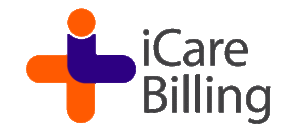Medical Billing and Denial Management in Healthcare
Denial Management in Healthcare should be the top priority for individual healthcare providers, group healthcare practices, and even larger healthcare facilities like hospitals and healthcare groups to stay profitable and get paid for most of the services. Healthcare administrators must focus on Assuming you’re dealing with an expanded number of claim denials which is going on month to month basis, that’s the sign that you really need to dig deeper and to find out why it’s happening and what exactly needs to be done to fix in Medical Billing process of your Practice if you have in-house medical billing team. If you continue to do the same practice over and over, this would negatively impact your healthcare business which will ultimately affect patient’s quality of care if you can’t cope up with medical billing challenges to run a smooth healthcare practice.
You will always have the option to learn about medical billing techniques and denial management in healthcare and have your billing team achieve the level of an expert medical biller and fix the issues which are contributing to the claim denials and rejections.
You must rely on Medical Billing Software to run some reports and identify the rejected and denied claims so you can take appropriate action. Generally, healthcare professionals think both are the same, but they are different. As soon as you are able to identify them you would be in a better position to take action based on their failure reason to go through into the insurance system or to have them get paid.
Electronic claims are being sent through a clearinghouse and such EDI Vendors do have set rules for a claim to met and then they pass the claim to the insurance company. Such rules are based on Member Insurance and Claims Clinical Information to ensure accurate claim delivery to the insurance system. If a claim is rejected by Medical Billing Software internal audit check, generally called “Claim Scrubbing Tool”, that is called rejected claim in healthcare. A good medical billing practice always has the process to identify such claims and resubmit them to the insurance company to get them processed and be on file in the insurance system for possible reimbursement.
The denied claims are generally considered a hard denial from the insurance company but that is not the case all the time. Denial Management in Healthcare has a certain practice that can be used to achieve the optimum level of collections for healthcare practices. All insurance denied claims can be due to different reasons and many billing mistakes can play a role to increase such numbers. All such claims can be resubmitted, and we can file an appeal and request an insurance representative on call to send the claim back for re-processing to get them reprocessed for reimbursement of the services provided. To deliver the “Good Medical Billing Service” we have outlined few major reasons for claims not getting paid and they are constantly getting denied or getting rejected by the clearinghouse.
1. Wrong Information Entry in Patient Demo
Claims can’t be processed by the insurance company which has incorrect patient information which always goes on claims such as patient name, wrong combination of first and last name, missing middle initial, wrong date of birth, address and especially wrong zip code and most important insurance member ID or insurance policy ID. On top of that, if wrong insurance is selected, the whole claim will be routed to the wrong insurance.
2. Inaccurate Primary Insurance Payment
One of the secondary claim denials is that when the medical billing team enters the primary insurance information on the Medical Billing or Practice Management Software, there could be wrong payment, adjustment, or allowed amount entered due to some technical error or human mistake. That will cause sending the wrong primary insurance info to the secondary insurance and claim will be processed incorrectly or will be denied completely if the combination of claim charge amount, claim allowed amount, claim paid amount, claim patient responsibility or and claim contractual adjustment doesn’t match with each other.
3. Service Not Authorized
Some insurances and some services do require prior authorization before performing the services and in such cases, you must bill only the authorized services. If the services provided to a patient are not included in the authorization form or authorization was not taken in the first place, there are higher chances of claims getting rejected by the insurance companies.
4. Invalid/Missing Diagnosis or Procedure Codes (ICD/CPT)
Entering the incorrect or expired diagnosis code (ICD Code) or not setting the appropriate diagnosis pointer to pinpoint the relevancy of diagnosis with CPT Code (Current Procedural Terminology)can cause the denial from the insurance company or rejection from the Medical Billing Software/EDI Vendor Claim Scrubbing Tool. When using the right modifier, it’s important to consider the patient’s charts and history to ensure accuracy.
5. Administrative Delay in Filing the Claim
There are few insurances that have very limited claim filing time. For example, some plans of United Healthcare only allow 90-120 days of timely filing limit. The most important thing which most physicians have to consider that claim filing starts from the DOS and it does count the holidays, just to make it clear it’s not business days it’s overall days. If there is an administrative delay in collecting the patient information, requesting patient the insurance information, or delay in processing the patient’s charts into the Electronic Health Record (EHR), then claims submission is delayed. If a claim is submitted after the claim filing limit, insurance denies such claims as “Timely filing limit expired”. If that happens, there are ways to get the claim processed by filing an appeal, but it depends on the scenario as you can’t take one corrective action on all types of denials.
6. Submission of Duplicate Claims
Sometimes claims are being created duplicates during the charting process in EHR (Electronic Health Record) or during the processing encounter creation in the draft section and encounter approval process. Most of the Medical Billing Software lack the ability to identify the duplicate claim to avoid submission and the Medical Billing team has to look at each claim manually to ensure that they are not submitting duplicate claims to the insurance. If a duplicate claim submitted to the insurance company, they have already received one, they will deny the recent claim as duplicate and you must wait for the original claim to be processed.
7. Physicians Not Contracted with Insurance
Some insurance companies like BCBS (Blue Cross & Blue Shield) require provider enrollment before submission of any claim. If the billing team is submitting the claims to insurance that require enrollment and the provider is not enrolled or credentialed, the claim will be denied. An Expert Medical Billing Team does have knowledge about the payer type, and its requirements so the claim submitted the first time could get on file and could be processed.
iCareBilling can Help to Fix Your Medical Billing Issues:
A Good Medical Billing Company has a follow-up process in place to regularly check the claims which are sent to the insurance companies and not paid. iCareBilling has a proven track record to deliver the best Denial Management in Healthcare and our specialized billing team constantly follow-up on each claim submitted to get you paid faster without facing challenges in medical billing. Contact Us today to schedule a consultation call with a Medical Billing Expert and discuss how we can help you to improve your collections and workflow to achieve maximum collection potential in your practice.

 Medical Billing Company, www.icarebilling.com.
Medical Billing Company, www.icarebilling.com.  Medical Billing Service, iCareBilling.com
Medical Billing Service, iCareBilling.com